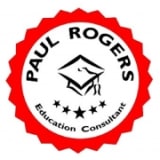This informal CPD article on Online Learning for Career Advancement was provided by Paul Rogers Education, an education consultant offering a variety of teaching, training and testing programmes.
In challenging economic times, the opportunity to acquire and develop new, professional skills is an option worthy of serious consideration. Online learning, which allows you to study at your own pace and at times that best suit you, provides an ideal platform to achieve such goals. With schools closed, or having to restrict attendance when they reopen, the need for teachers who are able to provide quality education has never been greater. We are currently in a global situation where, if you have ever considered retraining as a teacher, this is, therefore, the perfect time. You may also be considering the option of home-schooling your children, given the uncertainty surrounding COVID-19. You are likely to cope much better if you have actually been trained how to teach young people.
Online learning has made great strides in the last ten years or so. It should not be confused with old- style correspondence courses. All good training providers give trainees unique access to what is called a Learner Management System or LMS. This is accessible online and is where candidates can receive tuition via video lectures and presentations. They can also interact with tutors in real time, or through a secure, private and internal messaging system. Often, candidates on such courses can communicate with fellow students from locations all over the world. In such circumstances, the knowledge and experience gained can prove to be invaluable in a future teaching career.
A typical method of assessing progress on online training courses is by using an e-portfolio. Traditionally, a portfolio is a collection of one’s own work that is physically presented as evidence of both knowledge and achievement. An e-portfolio has the same aim but instead of actual documents and files, it allows a student to upload his or her work to a dedicated and personal space on the course provider’s LMS. This enables course tutors to read, mark and evaluate each portfolio submission and to provide constructive feedback to ensure progress is being made. All certificated courses will have a variety of checks to ensure each portfolio submission is a candidate’s own work. On completion, the entire portfolio should be examined and evaluated by an independent external assessor who will also assess the quality of tuition that has been provided. Courses that are completed and assessed in this way are called “evidentiary,” in that certificates are only awarded when all the requirements of the course have been met by supplying sufficient evidence and proof of a student’s competency.
It follows, therefore, that the validity and integrity of the awarding body is hugely important. There is no point in completing a course that does not carry a recognised certificate that will be of genuine professional value.
We hope this article was helpful. For more information from Paul Rogers Education, please visit their CPD Member Directory page. Alternatively please visit the CPD Industry Hubs for more CPD articles, courses and events relevant to your Continuing Professional Development requirements.













